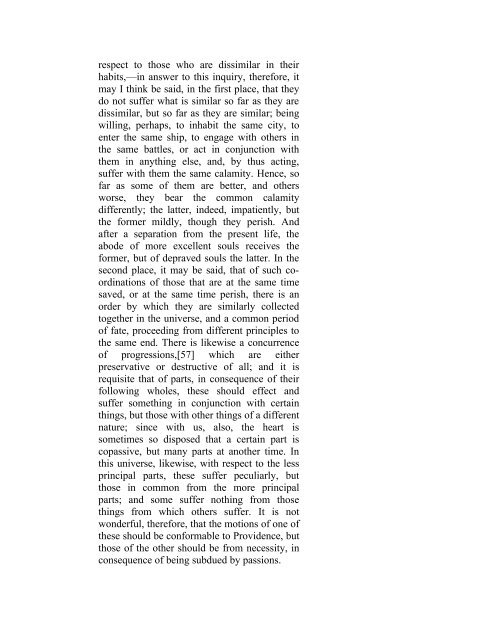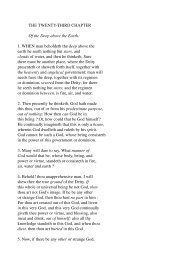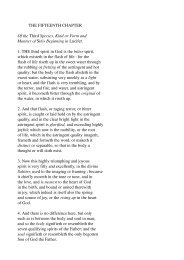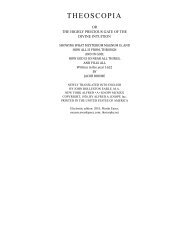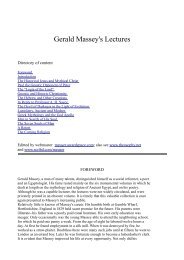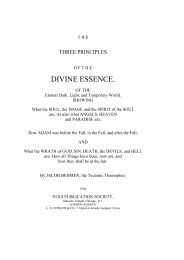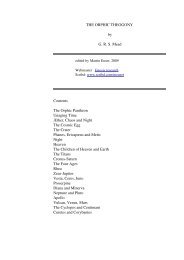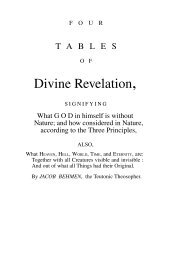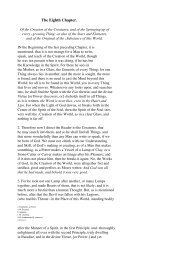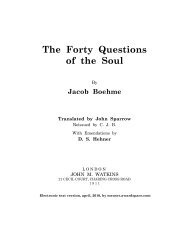PROCLUS, THE PLATONIC SUCCESSOR
PROCLUS, THE PLATONIC SUCCESSOR
PROCLUS, THE PLATONIC SUCCESSOR
Create successful ePaper yourself
Turn your PDF publications into a flip-book with our unique Google optimized e-Paper software.
espect to those who are dissimilar in their<br />
habits,—in answer to this inquiry, therefore, it<br />
may I think be said, in the first place, that they<br />
do not suffer what is similar so far as they are<br />
dissimilar, but so far as they are similar; being<br />
willing, perhaps, to inhabit the same city, to<br />
enter the same ship, to engage with others in<br />
the same battles, or act in conjunction with<br />
them in anything else, and, by thus acting,<br />
suffer with them the same calamity. Hence, so<br />
far as some of them are better, and others<br />
worse, they bear the common calamity<br />
differently; the latter, indeed, impatiently, but<br />
the former mildly, though they perish. And<br />
after a separation from the present life, the<br />
abode of more excellent souls receives the<br />
former, but of depraved souls the latter. In the<br />
second place, it may be said, that of such coordinations<br />
of those that are at the same time<br />
saved, or at the same time perish, there is an<br />
order by which they are similarly collected<br />
together in the universe, and a common period<br />
of fate, proceeding from different principles to<br />
the same end. There is likewise a concurrence<br />
of progressions,[57] which are either<br />
preservative or destructive of all; and it is<br />
requisite that of parts, in consequence of their<br />
following wholes, these should effect and<br />
suffer something in conjunction with certain<br />
things, but those with other things of a different<br />
nature; since with us, also, the heart is<br />
sometimes so disposed that a certain part is<br />
copassive, but many parts at another time. In<br />
this universe, likewise, with respect to the less<br />
principal parts, these suffer peculiarly, but<br />
those in common from the more principal<br />
parts; and some suffer nothing from those<br />
things from which others suffer. It is not<br />
wonderful, therefore, that the motions of one of<br />
these should be conformable to Providence, but<br />
those of the other should be from necessity, in<br />
consequence of being subdued by passions.


